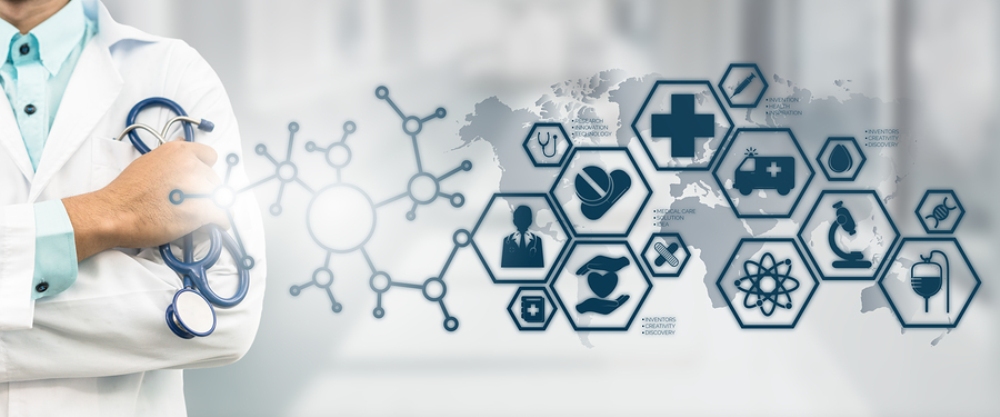
Developing technology and ever-changing mindsets continue to improve our health and lifespan. As new healthcare territories are being discovered, the main thing that needs to be remembered is the patients. Big changes that are powered by tech innovation can only ever be as valuable as the impact they bestow upon an individual. Being able to leverage innovation in a wise way will allow medical professionals to help more people than ever before. So, let’s have a look at some of the reasons why we should be feeling optimistic about the future of healthcare.
Artificial Intelligence
Artificial intelligence (AI) is a region in computer science that highlights the invention of machines that are intelligent enough to work and respond like a human. Some behaviors of AI include recognition of speech, planning, learning and solving problems. AI is currently being trialed and used for a wide array of healthcare and research purposes. This includes disease detection, chronic condition management, the discovery of drugs and health service delivery.
Gene Therapy
Gene therapy is used to restore a mutated or abnormal gene without removing or modifying the defective DNA. Instead, it uses a vector to introduce genetic material into the cells. This technique basically allows us to correct defective DNA found within human cells, which helps to remove fatal genetic diseases. As this is a new medical technology, its safeness, usefulness and side effects need to be proven before it is brought into effect. There are also a lot of ethical concerns about the use of this treatment.
Immuno-oncology
Immuno-oncology, also known as cancer immunotherapy, is a treatment that exists which causes the body’s immune system to change its reaction towards cancer cells. This method of treatment can either help take pressure off the immune system or it can teach the immune system how to fight the cancer. This new practice is a major breakthrough in treating cancer, especially if the therapy is paired up with another form of cancer treatment.
Personalized Medicine
Personalized medicine is there to treat and care for patients who suffer from specific conditions in a more precise manner. Every person is unique and the way in which an individual will respond to medication will be different. This can be due to inherited traits, environment, and lifestyle. By linking and evaluating someone’s genomic information, along with diagnostic and clinical knowledge of that individual, patterns that determine a patient’s risk of disease, early illness detection and the best things we can do to help can be established. This is not a new concept. However, the possibility of uncovering our body’s reactions to particular interventions and being able to predict the risk of contracting a certain illness has only recently become possible.
Wearable Digital Devices
There are many digital devices which help to capture data, maintain a healthy lifestyle and support people with illnesses or going through life changes. For example, there are apps that help patients who are suffering from sickness (such as cancer) connect with each other. A range of devices you can wear exists. One of these is medical alarm systems for people who have health problems or are considered high risk, so want some peace of mind. A healthcare professional is available at a click of a button. If you are wondering how Bay Alarm Medical systems work, then check out the link.
There are also wearable devices for people suffering from hemophilia, which monitor heart rate and log infusions and episodes of bleeding. Finally, smartwatches are there to help encourage healthy behavior and monitor your lifestyle.
As you can see, the advancements we are witnessing are truly amazing. The optimism about these tech-driven breakthroughs is high in this healthcare era. We surely do have a lot to look forward to.